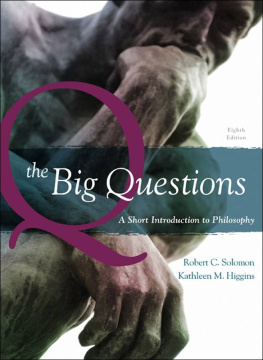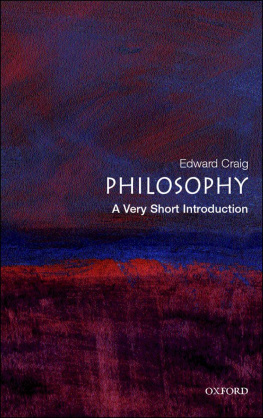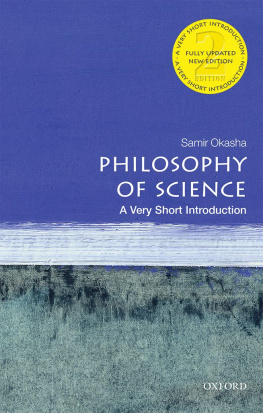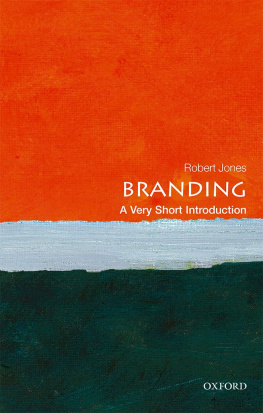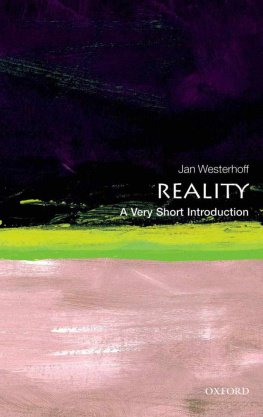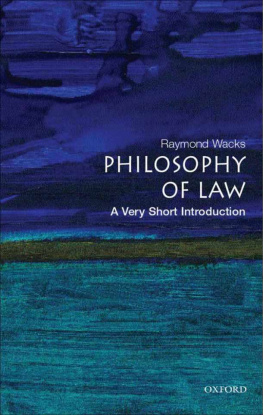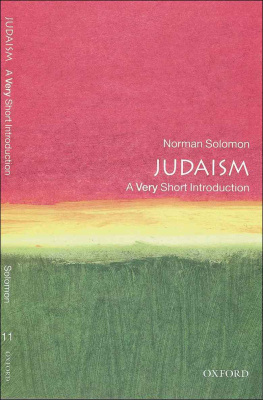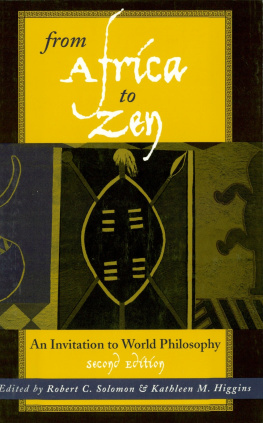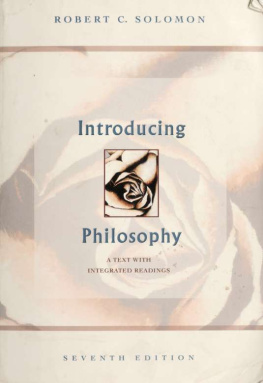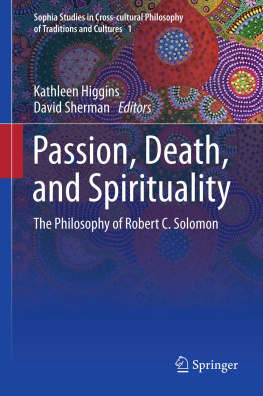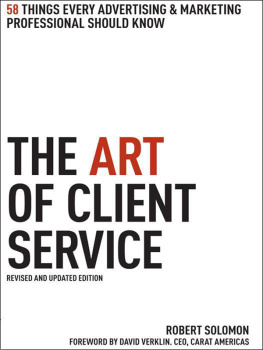Solomon Robert C. - The Big Questions: A Short Introduction to Philosophy
Here you can read online Solomon Robert C. - The Big Questions: A Short Introduction to Philosophy full text of the book (entire story) in english for free. Download pdf and epub, get meaning, cover and reviews about this ebook. year: 2013, publisher: Wadsworth, genre: Religion. Description of the work, (preface) as well as reviews are available. Best literature library LitArk.com created for fans of good reading and offers a wide selection of genres:
Romance novel
Science fiction
Adventure
Detective
Science
History
Home and family
Prose
Art
Politics
Computer
Non-fiction
Religion
Business
Children
Humor
Choose a favorite category and find really read worthwhile books. Enjoy immersion in the world of imagination, feel the emotions of the characters or learn something new for yourself, make an fascinating discovery.
- Book:The Big Questions: A Short Introduction to Philosophy
- Author:
- Publisher:Wadsworth
- Genre:
- Year:2013
- Rating:4 / 5
- Favourites:Add to favourites
- Your mark:
- 80
- 1
- 2
- 3
- 4
- 5
The Big Questions: A Short Introduction to Philosophy: summary, description and annotation
We offer to read an annotation, description, summary or preface (depends on what the author of the book "The Big Questions: A Short Introduction to Philosophy" wrote himself). If you haven't found the necessary information about the book — write in the comments, we will try to find it.
The Big Questions: A Short Introduction to Philosophy — read online for free the complete book (whole text) full work
Below is the text of the book, divided by pages. System saving the place of the last page read, allows you to conveniently read the book "The Big Questions: A Short Introduction to Philosophy" online for free, without having to search again every time where you left off. Put a bookmark, and you can go to the page where you finished reading at any time.
Font size:
Interval:
Bookmark:
The Big Questions
A Short Introduction to Philosophy
Eighth Edition

ROBERT C. SOLOMON
University of Texas at Austin
KATHLEEN M. HIGGINS
University of Texas at Austin

Australia Brazil Japan Korea Mexico Singapore Spain United Kingdom United States

The Big Questions: A Short Introduction to Philosophy, Eighth Edition
Robert C. Solomon and Kathleen M. Higgins
Publisher/Executive Editor: Clark Baxter
Senior Sponsoring Editor: Joann Kozyrev
Associate Media Editor: Diane Akerman
Assistant Editor: Nathan Gamache
Editorial Assistant: Michaela Henry
Marketing Manager: Mark Haynes
Marketing Coordinator: Josh Hendrick
Marketing Communications Manager: Kim Soltero
Project Manager, Editorial Production: Abigail Greshik
Creative Director: Rob Hugel
Art Director: Faith Brosnan
Print Buyer: Marcia Locke
Permissions Editor: Timothy Sisler
Production Service: Pre-PressPMG
Text Designer: Rebecca Evans
Photo Researcher: Rachel Trousdale
Copy Editor: Pre-PressPMG
Cover Designer: RHDG/Christopher Harris
Cover Image: age footstock/SuperStock
Compositor: Pre-PressPMG
2010, 2006 Wadsworth, Cengage Learning
ALL RIGHTS RESERVED. No part of this work covered by the copyright herein may be reproduced, transmitted, stored or used in any form or by any means graphic, electronic, or mechanical, including but not limited to photocopying, recording, scanning, digitizing, taping, Web distribution, information networks, or information storage and retrieval systems, except as permitted under Section 107 or 108 of the 1976 United States Copyright Act, without the prior written permission of the publisher.
For product information and
technology assistance, contact us at Cengage Learning
Academic Resource Center, 1-800-423-0563
For permission to use material from this text or product,
submit all requests online at www.cengage.com/permissions.
Further permissions questions can be emailed to
permissionrequest@cengage.com
Library of Congress Control Number: 2008941295
ISBN-13: 978-0-495-59515-1
ISBN-10: 0-495-59515-2
Wadsworth, Cengage Learning
10 Davis Drive
Belmont, CA 94002-3098
USA
Cengage Learning products are represented in Canada by Nelson Education, Ltd.
For your course and learning solutions, visit academic.cengage.com
Purchase any of our products at your local college store or at our preferred online store www.ichapters.com
Printed in Canada
1 2 3 4 5 6 7 8 12 11 10 09
Kindle textbooks are functionally equivalent to the print textbook. In some cases, individual items such as ancillary images or multimedia have been removed for digital delivery due to rights restrictions.
For our nieces and nephews,
Jem, Jesi, Danyal, Rachel, and Carrie Solomon,
Caitlin Higgins, Jeffrey and Matthew Cook,
Allison, Rachel, Daniel, Brett, and Marcus Felten,
Kevin and Emily Daily
It was the fall of 1806, in the college town of Jena, in what we now call Germany. It was about the time when most students and professors would have been getting ready for their classes, with mixed annoyance and anticipation. The professors would have been finishing up their summer research; the students would have been doing what students usually do at the end of the summer.
But this year school would not begin as usual.
Napoleons troops were already approaching the city, and you could hear the cannon from the steps of the university library. French scouts were already in the town, walking around the university, stopping for a glass of wine in the student bars, and chatting casually with the local residents, many of whom were in sympathy with the new French ideals of liberty, equality, and fraternity.
As the battle was about to begin, a young philosophy instructor named Georg Wilhelm Friedrich Hegel was hastily finishing the book he was writinga very difficult philosophy book with the forbidding title The Phenomenology of Spirit. But spirited is what the book was, and it perfectly captured the tension, excitement, and anxiety of those perilous days. It was the end of an old way of life and the beginning of a new one. The book was a vision of consciousness caught in the midst of gigantic forces and looking for direction in a new and terrifyingly human world. It was an appeal for hope and thoughtful effort toward universal understanding and a belief in what was then innocently called the perfectibility of humanity.
Transfer the situation to our own timesit was as if life in America were about to change completely, with all our old habits and landmarks, our ideas about ourselves and the ways we live, replaced by something entirely new and largely unknown. We talk about future shock and megatrends but, in fact, most of what we consider drastic changes in American life are mere shifts of emphasis, sometimes inconvenient advantages that accompany new and improved technologies and techniques. If so many of us can get so melodramatic about computers, television, and the Internet, how would we react to a real change in our lives? Hegel and his students felt confident, even cheerful. Why? Because they had a philosophy. They had a vision of themselves and the future that allowed them to face the loss of their jobs, even the destruction of their society and the considerable chaos that would follow. Their ideas inspired them and made even the most threatening circumstances meaningful.
A class of our students, who had been reading Hegels philosophy were asked to characterize their own views of themselves and their times. The answers were not inspiring. For many of them, the word dull seemed to summarize the world; others spoke of crisis and despair. One said that life was absurd and another that it was meaningless. When asked why, they answered that gasoline was expensive, that most of them werent getting the job interviews they really wanted, and that television programs were bad. We agreed that these events were less than tragic, hardly absurd, and didnt make life meaningless. Everyone agreed that the specters of nuclear war and terrorism had put a damper on our optimism, but we also agreed that the likelihood of such catastrophes was debatable and that, in any case, we all had to live as best we could, even if under a shadow. But why, then, in these times of relative affluence and peace (compared to most of the world throughout most of history) were our answers so sour? What were we missing that Hegel and his students, confronting the most terrible battles ever known, seem to have hadsomething that made them so optimistic and fulfilled? Again, the answer is a philosophy.
Georg Wilhelm Friedrich Hegel was born in Stuttgart in 1770. While he was a college student, he was enthusiastic about the French Revolution (17891795) and an admirer of Napoleon. Hegel was teaching at the University of Jena in 1806 when Napoleon marched in and took over the town, ending the eight-hundred-year-old Holy Roman Empire and initiating widespread reforms throughout the German states. It was in this atmosphere of international war and liberal hopes that Hegel formulated his philosophy, which centered on the notion of Spirit, by which he meant the unity of the world through human consciousness. His method was
Next pageFont size:
Interval:
Bookmark:
Similar books «The Big Questions: A Short Introduction to Philosophy»
Look at similar books to The Big Questions: A Short Introduction to Philosophy. We have selected literature similar in name and meaning in the hope of providing readers with more options to find new, interesting, not yet read works.
Discussion, reviews of the book The Big Questions: A Short Introduction to Philosophy and just readers' own opinions. Leave your comments, write what you think about the work, its meaning or the main characters. Specify what exactly you liked and what you didn't like, and why you think so.

